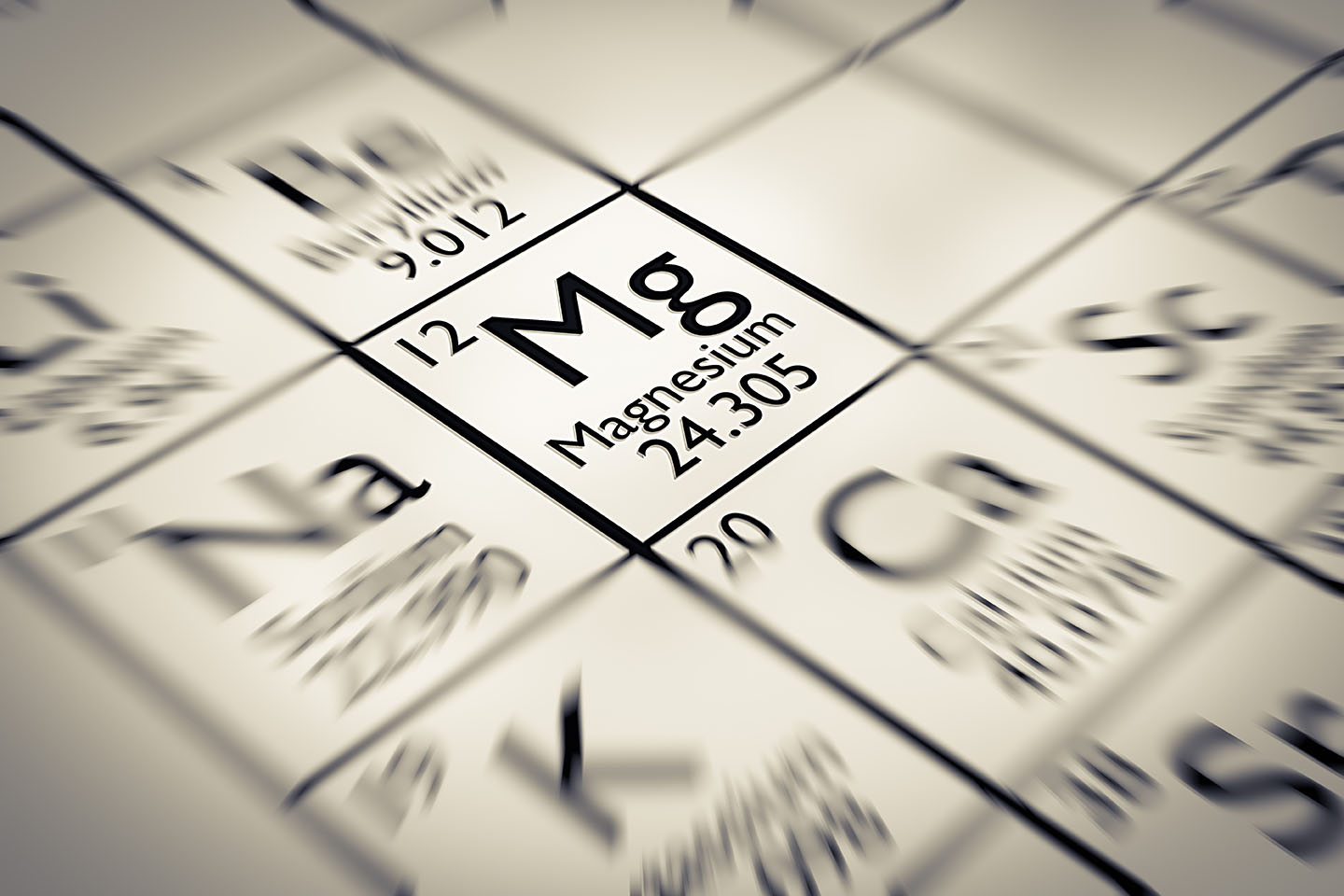

Magnesium is a chemical element with the symbol Mg and atomic number 12. It is a silvery-white, lightweight metal that is the eighth most abundant element in the Earth's crust. Magnesium is a very reactive element and it can easily burn in air.
Magnesium is a major component of chlorophyll, the molecule that plants use to capture sunlight. It is also found in bones and teeth, and it is essential for many biological processes, such as muscle contraction and nerve transmission.
Magnesium is used in a variety of industrial applications, such as making light bulbs, magnesium alloys, and fertilisers. It is also used in medical applications, such as treating asthma and heart disease.
Magnesium is an important mineral for human health. It is involved in over 300 different enzymatic reactions in the body, and it helps to regulate blood sugar levels, blood pressure, and muscle and nerve function. Magnesium deficiency is a common problem, and it can lead to fatigue, muscle cramps, and difficulty sleeping.
The magnesium sulfate solution was used to flush the wound.

Noun: A chemical element with the symbol Mg and atomic number 12. It is a light, silvery-white metal that is the eighth most abundant element in the Earth's crust.
Adjective: Describing something that contains magnesium. For example, you could say "magnesium alloy" or "magnesium sulfate".
Verb: To treat something with magnesium. For example, you could say "The doctor magnesiumed the patient's leg" or "The farmer magnesiumed the soil".
The word "magnesium" comes from the Latin word "magna silex", which means "great stone". This is a reference to the fact that magnesium is often found in the form of magnesium oxide, which is a white, powdery substance.
The word "magnesium" was first used in English in the 17th century. It was originally used to describe the metal magnesium, but it soon came to be used in a more general sense to describe anything that contained magnesium.
What is magnesium?
Question:
Describe the properties and uses of magnesium in everyday life. Explain its role in biological systems as well.
Answer:
Magnesium is a versatile element with numerous properties that make it valuable in various aspects of daily life. It is a silver-white metal known for its low density and high strength-to-weight ratio. One of its key properties is its ability to ignite easily, leading to its use in flares and fireworks. Additionally, magnesium's ability to conduct heat and electricity makes it useful in the production of electronics and aircraft components.
In biological systems, magnesium plays a critical role. It is an essential mineral for both plants and animals. In plants, magnesium is a central component of chlorophyll, the pigment responsible for photosynthesis. This process allows plants to convert sunlight into energy. In animals, magnesium is crucial for various biochemical reactions, including those involving DNA and RNA synthesis. It also contributes to muscle and nerve function, as well as bone health.
Moreover, magnesium supplements are often used to maintain proper levels of this mineral in the body, as deficiency can lead to health issues such as muscle cramps and irregular heartbeats.